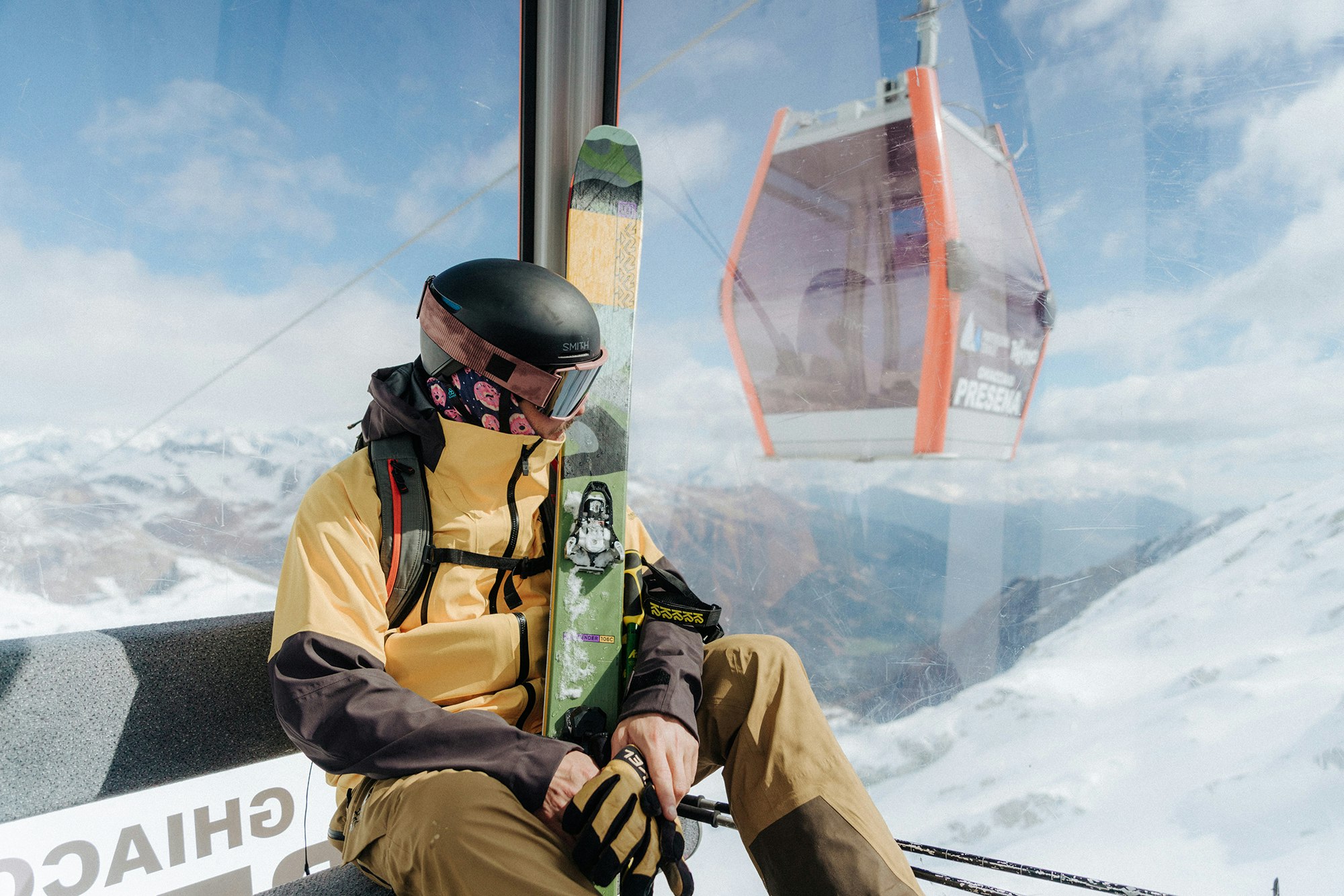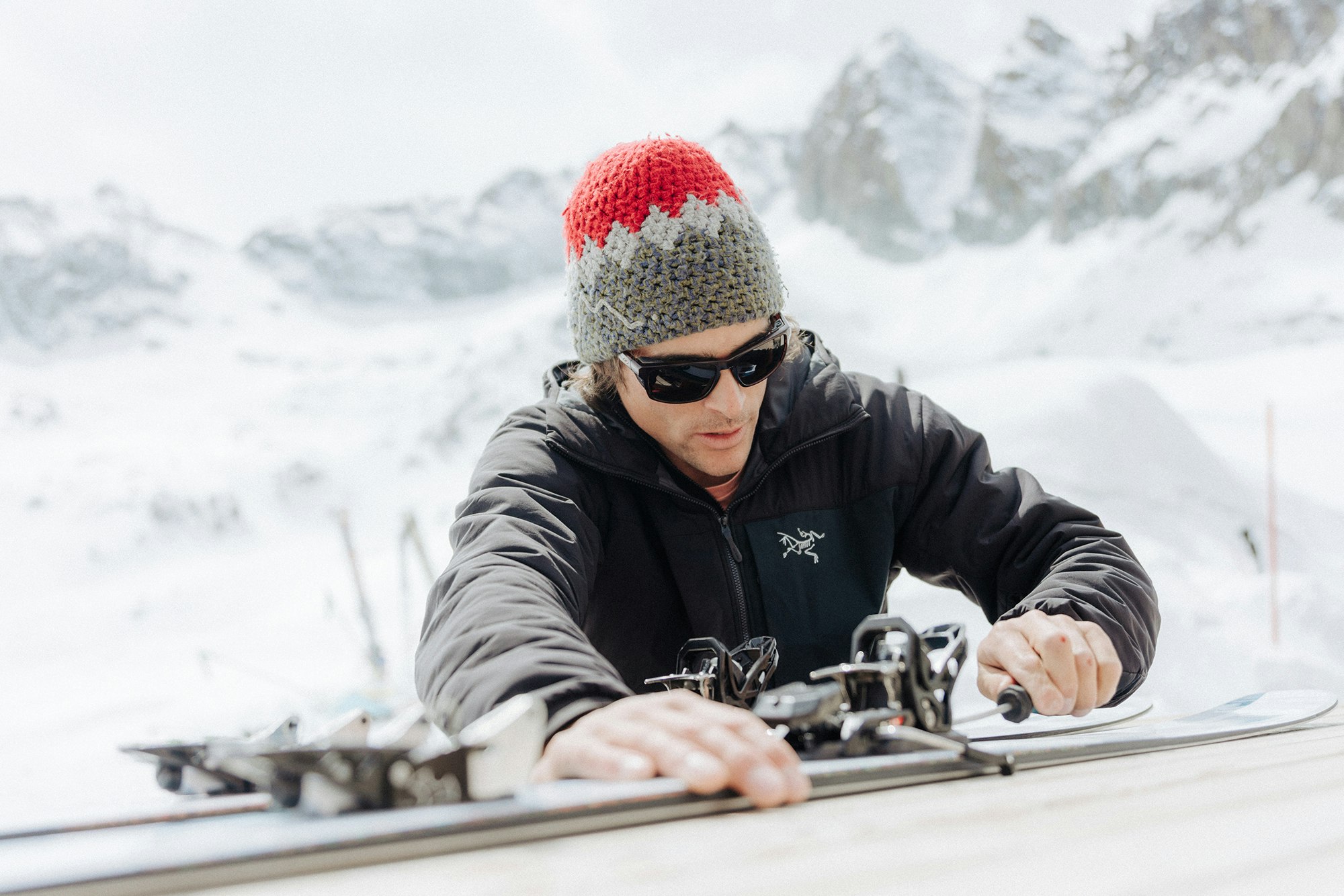Bindings: the revolution is here
Modern freetour bindings are ultralight with impressive release values
- Author: Niccolò Zarattini
- Photographer: Federico Ravassard
If there’s a sector that has been completely revolutionized, it’s bindings. Here, the latest developments in engineering are completely changing the way we ski.
Any freerider’s biggest nightmare is losing a ski during a steep, fast descent on hard pack or crust. The release of a ski to avoid twisting or breaking a limb is incredibly important. But if the ski releases unexpectedly when changing direction on compact snow, the consequences could actually be worse. Modern freetour bindings are ultralight with impressive release values, they aren’t far off the heaviest step-in alpine binding. These days there’s an incredible array of choice, from pure pin, to hybrids with pin at the front and full heel piece at the back, to ‘transformers’ that change depending on what you’re doing, as well as those that use the same plate with different toe pieces.

Freeriders have been waiting for this day since the time of Marker Duke and Diamir bindings, where you had to be willing to lug 5 kilos (11 lbs.) per foot uphill, not counting the weight of your boots. Just thinking about it makes your quads and hip muscles burn. A little over ten years have passed, but in the world of bindings it feels like a different era entirely.

Before, you couldn’t trust that a binding would release: either you locked it so your ski wouldn’t come off, or you took a leap of faith into the unknown, never knowing if you would lose a ski after misjudging a bit of terrain.
For those coming fresh from alpine skiing, the fear was real. Not to mention that with frame bindings you used regular boots with no tech inserts or ski/walk mechanism, so with every step you had to raise the entire binding including the heel piece. Skinning on fat skis was an activity reserved for the reckless few. It feels like prehistory, but we’re only talking about ten years ago. This segment has made an astounding leap forward, more than any other.
Share this article

